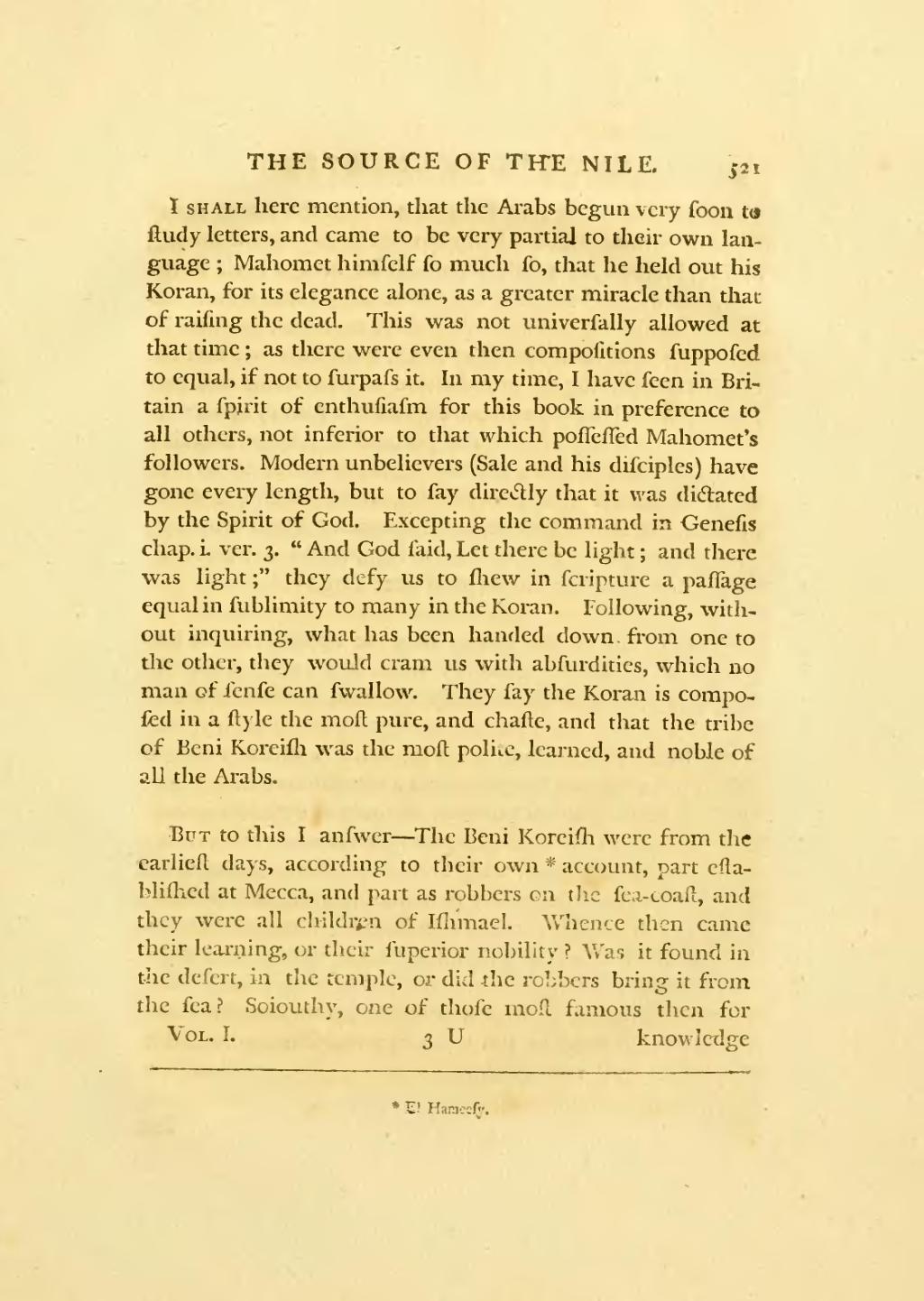I SHALL here mention, that the Arabs begun very soon to study letters, and came to be very partial to their own language; Mahomet himself so much so, that he held out his Koran, for its elegance alone, as a greater miracle than that of raising the dead. This was not universally allowed at that time; as there were even then compositions supposed to equal, if not to surpass it. In my time, I have seen in Britain a spirit of enthusiasm for this book in preference to all others, not inferior to that which possessed Mahomet's
followers. Modern unbelievers (Sale and his disciples) have gone every length, but to say directly that it was dictated by the Spirit of God. Excepting the command in Genesis chap. i ver. 3. "And God said, Let there be light; and there was light;" they defy us to shew in scripture a passage equal in sublimity to many in the Koran. Following, without inquiring, what has been handed down, from one to the other, they would cram us with absurdities, which no man of sense can swallow. They say the Koran is composed in a style the most pure, and chaste, and that the tribe of Beni Koreish was the most polite, learned, and noble of all the Arabs.
But to this I answer — The Beni Koreish were from the earliest days, according to their own *[1] account, part established at Mecca, and part as robbers on the sea-coast, and they were all children of Ishmael. Whence then came their learning, or their superior nobility? Was it found in the desert, in the temple, or did the robbers bring it from the sea? Soiouthy, one of those most famous then for
- El Hameesy.
- ↑ * El Hameesy.
